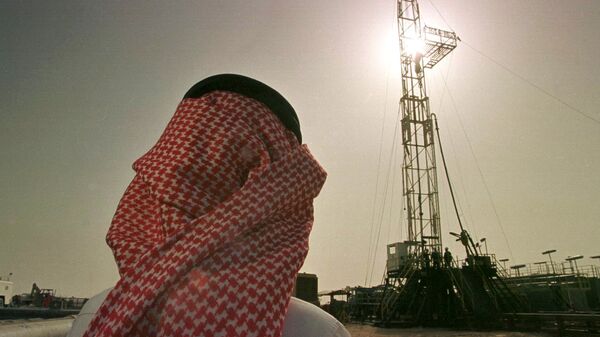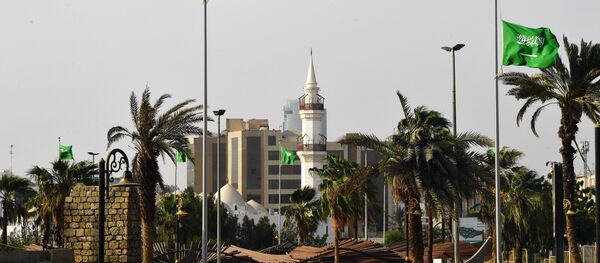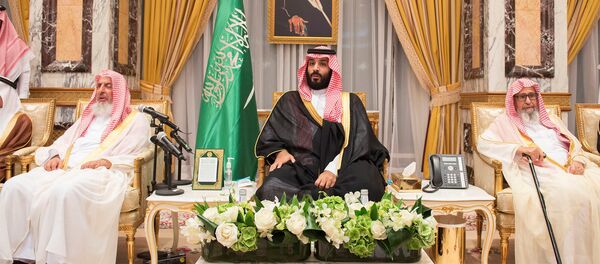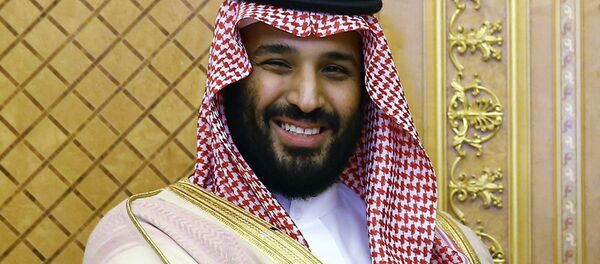WASHINGTON (Sputnik) — The Director of the Independent Institute Center for Peace & Freedom Ivan Eland told Sputnik that oil prices would likely settle down in the long term.
"The purge may have short-term effects on oil prices, it probably will not affect the price in the long term," he said. "Other factors in the price increase are hurricanes in the Gulf [of Mexico] region in the US."
However, the political upheaval in Riyadh will not affect longer-term production capabilities, Eland noted.
"The purge will probably have little effect on long-term Saudi production, despite the market jitters," he said.
Higher Oil Prices May Boost Saudi Revenue
The former US Ambassador to Riyadh Chas Freeman told Sputnik that soaring global oil prices in the wake of Crown Prince Mohammed bin Salman's purge would not be maintained, but would be a boon to Saudi oil export revenues while they last.
However, Freeman, also a former US assistant secretary of state for international security affairs, advised on Monday that the price surge was a short-term response to immediate uncertainties and did not reflect longer-lasting structural forces.
The Saudi oil industry, which is concentrated in the eastern Dhahram region of the country was unlikely to be affected in its operations by the political changes, Freeman explained.
"I do not think that it is likely to have much effect on Saudi oil production," he said.
However, in the short term, the price rise might prove beneficial to the Saudi economy and government by unexpectedly increasing oil export revenues to a significant degree, Freeman noted.
"It will help the Saudi budget a bit," he said.
Clearing the Way for a Successor
The coup was most likely to clear the way for the 82-year-old, ailing king to abdicate and hand over total power to his ambitious 32-year-old son, Durham University’s School of Government and International Affairs associate professor in Middle East Politics Christopher Davidson told Sputnik.
"What seems to be a mixture of high profile arrests can be read as a multi-pronged effort to remove all possible opposition in advance of the King's expected abdication and the crown prince's expected succession," Davidson said.
"Some media outlets have been content to take at face value the Saudi authorities' message that this is an 'anti-corruption drive,' and have focused mostly on the arrest of billionaire Prince Alwaleed bin Talal," he said.
However, in reality, a massive shift in power has taken place in the oil-rich Desert Kingdom, Davidson pointed out.
"The reality is that in the last 24 hours several of the crown prince's key potential rivals and critics have also been taken out of the running," he said.
Al-Assaf is also a current director of Saudi Aramco. He was arrested on charges of corruption linked to an urban expansion project in the city of Mecca, according to a report on the Akhbaar 24 news web platform. He has already demonstrated that he is willing to speak publicly about the true condition of the Saudi economy, Davidson said.
Saudi Arabia has also been suffering from increasing financial difficulties and a bloody, unresolved war in neighboring Yemen since King Salman and his son took power following the death of King Abdullah in 2015.
Numerous Saudi royals and top government officials were arrested late last week as part of a claimed anti-corruption campaign, including the former heads of the country's top intelligence agencies.




